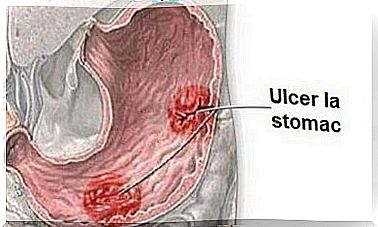Gluten Intolerance Or Celiac Disease

Celiac disease or gluten intolerance is a chronic hypersensitivity to a protein in certain foods, such as cereals. Experts estimate that it affects about 1% of the population and is more common in women than men.
In Spain, for example, it affects about 500,000 people, and the number is growing every year. One of the most worrying things is that about 75% of those affected have not been diagnosed correctly.
Gluten intolerance occurs in people who have genes that predispose them to this disease. It is characterized by an inflammatory reaction based on immunity in the lining of the small intestine. This affects the absorption of macro- and micronutrients.
As mentioned above, it is a chronic autoimmune disease. This means that the immune system itself attacks the cells as a form of protection.
Celiac disease or gluten intolerance

The development of gluten intolerance has no single cause. It is a combination of factors that cause intolerance. A genetic predisposition, certain structural abnormalities in the small intestine and a diet rich in gluten are examples of factors predisposing to the development of gluten intolerance.
For all these reasons, we can say that it is an intestinal disease that manifests itself in genetically susceptible people. These people cannot digest a protein present in gluten, called gliadin. When these people eat gluten-containing foods, the small intestine reacts and becomes inflamed. When this happens, the intestine has difficulty absorbing nutrients from food.
It is not easy to diagnose gluten intolerance. Until recently, the condition was diagnosed only if there were clear clinical symptoms. In addition, this disease has a wide variety of symptoms that can be attributed to other diseases.
However, according to some experts, even if there are no symptoms, the disease may exist if, for example, you have sick relatives. For this reason, doctors request serologies, genetic tests or histologies.
Currently, medical professionals may also request clinical diagnostic tests, such as blood tests that include serological markers of celiac disease. These markers are antibodies, such as:
Symptoms of gluten intolerance

In adults, most cases are manifested by discrete symptoms, mild diarrhea, weight loss, anemia and, in 10% of cases, constipation. Because the small intestine is not able to absorb the necessary nutrients, intestinal malabsorption occurs. Due to this, other symptoms may occur, such as bruising or nosebleeds.
It is normal for the patient to feel tired or itchy on the skin, eventually developing herpetiform dermatitis (DH) and even hair loss.
In addition, mouth ulcers occur, and women often suffer from irregular menstruation. Also, cramps or intolerant of other nutrients, such as lactose, are common.
Is it possible for someone to suffer from asymptomatic celiac disease?
Not all patients who have gluten intolerance suffer from the symptoms mentioned above, as some of them are asymptomatic. In this case, you will wonder how it is possible for them to be diagnosed.
Gluten intolerance is a disease with a genetic predisposition. In addition, in order for a doctor to diagnose it, as mentioned above, he must request a blood test for the markers of the disease. Bowel damage can be seen after a biopsy.
In short, even if a patient does not show the most obvious symptoms, such as vomiting or diarrhea, the intestinal mucosa may still be affected. Therefore, the damage to the mucosa may progress to other diseases or the patient may suffer complications if he does not adopt a proper diet.
We hope you enjoyed finding out more about celiac disease or gluten intolerance!









